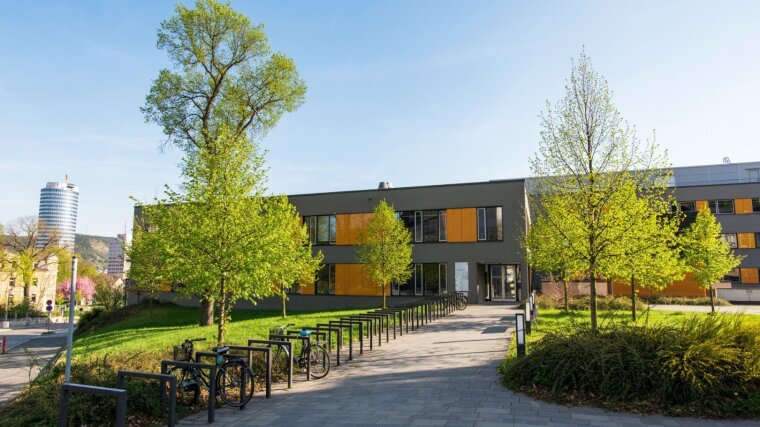
Energy and building management are of particular importance when it comes to the day-to-day running of the university. After all, it is through the construction and maintenance of infrastructure that the fulfillment of the university's core task of teaching and research is made possible in the first place. At the same time, according to current figures from the German Federal Ministry for the Environment, the building sector causes a total of about 30% of Germany's total emissions. At the University of Jena, too, the majority of climate-damaging emissions stem from the energy and heat supply of our numerous buildings. Conversely, this also results in the greatest potential for action to reduce emissions. In the following, we therefore present some selected projects with which the University of Jena is trying to meet the challenges in this field.
Project "Climate-neutral state administration 2030"
Based on the Thuringian Climate ActExternal link, which was passed on December 14, 2018, the state of Thuringia has committed to a climate-neutral state administration by 2030. Thuringia's universities are included in this resolution by a cabinet decision in October 2019 and consequently must also operate in a climate-neutral manner by 2030. The basis of this process is a CO2 start balance, which was prepared by Department 4 of the University of Jena. This is followed by a (detailed) analysis of the building stock in use and the development of a catalog of suitable options.
Sustainable heating
The thermostat of a heater with different levels for regulating the room temperature.
Image: PixabayThe heat supply for the new Inselplatz campus will be provided by 30% from waste heat from the new university computer center and by 50% from geothermal energy. This means that 80% of the heat supply will come from CO2-neutral and sustainable energies and only 20% from district heating.
In order to also reduce the CO2 emissions resulting from the consumption of heating energy in existing properties, you will find centrally implemented measures and recommendations on heating on the website of the Division 4.
More tips for reducing energy consumption at home can be found here.
Sustainable aspects in construction projects
The concerns of sustainability, climate and environmental protection must be taken into account in all future construction projects. For this purpose, there are explicit regulations and corresponding resolutions of the state parliament, in which guidelines for the execution of construction tasks of the Free State of Thuringia are specified. These are also to be applied to all buildings at the University of Jena.
The guideline 21 "Climate Protection, Resource Conservation and Energy Saving" of the Guideline Construction Thuringia (Richtlinie Bau Thüringen) regulates corresponding measures. This guideline requires, for example, that the standard values of the Building Energy ActExternal link be undercut by at least 20%. Also, depending on the location, environmentally friendly and economical energy concepts based on renewable energy sources, heat pumps and local and district heating from combined heat and power generation shall be used for all new buildings.
If you have any questions about the energy and facility management projects described above, please contact our colleagues in Department 4 de.
Further information
You will find further interesting and useful information and contacts on the subject of sustainable construction and operation of properties on the website of Department 4 de.
